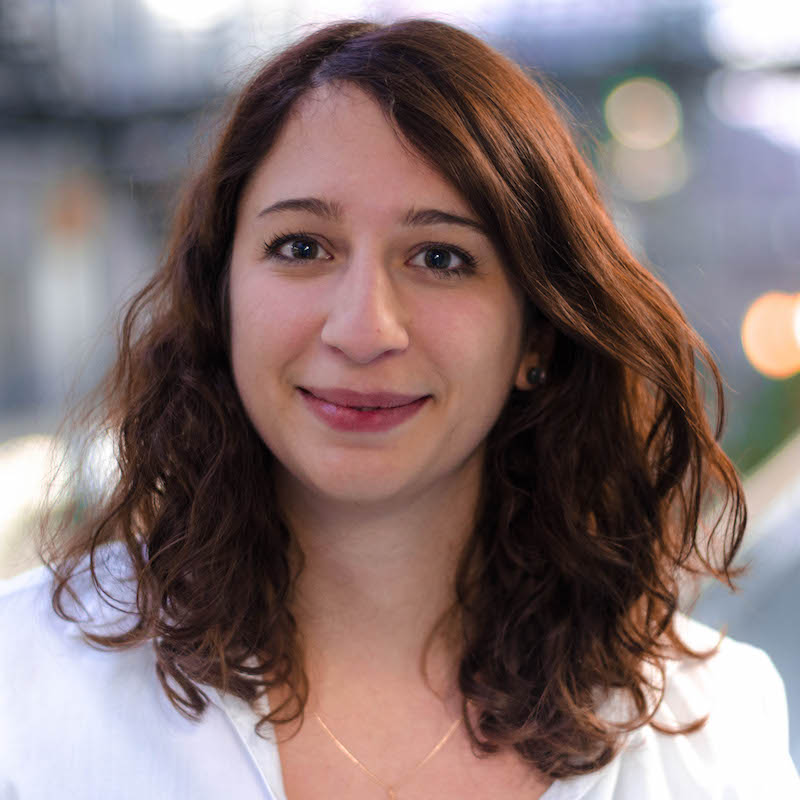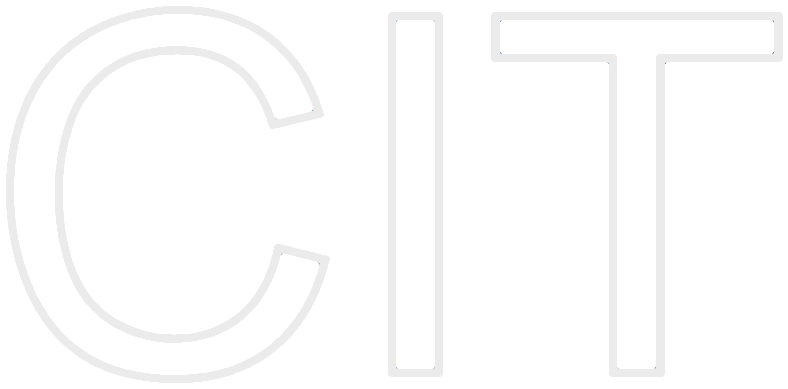Dr. Dora Dzvonyar
 |
|
Teaching
- iPraktikum (2020, 2019/20, 2019, 2018/19, 2018, 2017/18, 2017, 2016/17, 2016, 2015/16, 2015)
- Agile Project Management (2020, 2019/20, 2019, 2018/19, 2018, 2017/18, 2017, 2016/17, 2016, 2015/16)
- Teaching iOS (2020, 2019/20, 2019, 2018/19, 2018, 2017/18, 2017, 2016/17, 2016, 2015/16)
Certifications
- Science Communication Masterclass, UWE Bristol (11/2018)
- Zertifikat Hochschullehre der Bayerischen Universitäten (07/2017)
- Apple Certified Trainer (12/2017)
- Professional Scrum Master I (03/2018)
Voluntary Projects
- TEDxTUM Organizer (2014 - present)
- Informatik Forum Frauen Deputy Gender Equality Officer (2015 - 2020)
- Munich Geekettes Ambassador (2017 - 2020)
Presentations
- APSEC 2018: Team Composition and Team Factors in Software Engineering: An Interview Study of Project-based Organizations (Nara, 12/2018)
- Apple Educator Summit 2018: Teaching Strategies for App Development with Swift - Panel (Berlin, 10/2018)
- SEEM 2018: Team Composition in Software Engineering Project Courses (Göteborg, 06/2018)
- EDUCON 2018: Algorithmically Supported Team Composition for Software Engineering Project Courses (Santa Cruz de Tenerife, 04/2018)
- ISEE 2018: Reaching Steady State in Software Engineering Project Courses (Ulm, 03/2018)
- MODELS 2017 Edu'Symp: Modeling in Agile Project Courses (Austin, TX, 09/2017)
- Atlassian Summit 2015: Using Atlassian for State-of-the-Art Computer Science Education (San Francisco, CA, 11/2015)
- MODELS 2014 Edu'Symp: Real Projects with Informal Models (Valencia, 10/2014)
Publications
2019: TEMPO: A Framework for Team Composition and Management in Project-Based Organizations (Link)
Dora Dzvonyar
Technical University of Munich, Doctoral Dissertation
2018: Team Composition and Team Factors in Software Engineering: An Interview Study of Project-based Organizations
Dora Dzvonyar, Bernd Bruegge
Asia-Pacific Software Engineering Conference (APSEC'18)
2018: Software Theater—Teaching Demo-Oriented Prototyping
Stephan Krusche, Dora Dzvonyar, Han Xu, and Bernd Bruegge
ACM Transactions on Computing Education (TOCE), 18(2), 10.
2018: Team Composition in Software Engineering Project Courses
Dora Dzvonyar, Lukas Alperowitz, Dominic Henze, and Bernd Bruegge
International Workshop on Software Engineering Education for Millennials (SEEM'18) @ ICSE'18
2018: Algorithmically Supported Team Composition for Software Engineering Project Courses
Dora Dzvonyar, Dominic Henze, Lukas Alperowitz, and Bernd Bruegge
Global Engineering Education Conference (EDUCON'18)
2018: Reaching Steady State in Software Engineering Project Courses
Dora Dzvonyar, Bernd Bruegge
Workshop on Innovative Software Engineering Education (ISEE'18) @ SE'18
2017: Modeling in Agile Project Courses
Lukas Alperowitz, Jan Ole Johanssen, Dora Dzvonyar, and Bernd Bruegge
EduSymp @ MoDELS'17
2016: Metrics in Agile project courses
Lukas Alperowitz, Dora Dzvonyar, and Bernd Bruegge
International Conference on Software Engineering Companion (ICSE'16)
2016: Context-aware user feedback in continuous software evolution
Dora Dzvonyar, Stephan Krusche, Rana Alkadhi, and Bernd Bruegge
International Workshop on Continuous Software Evolution and Delivery (CSED'16) @ ICSE'16
2014: Real Projects with Informal Models
Dora Dzvonyar, Stephan Krusche, and Lukas Alperowitz
EduSymp @ MoDELS'14
Projects
- Mobile app for Zeiss DCC Customer Portal, Zeiss (2020)
- Digitalization for Zeiss sales teams and their customers, Zeiss (2019-20)
- Training app for an in vivo microscope in brain surgery, Zeiss (2019)
- Assistant to prepare for and recover from cataract surgery, Zeiss (2018-2019)
- Predictive parking spot recommendations based on machine learning, msg (2018)
- Reservation system with near-field verification, Bokowsky+Laymann (2017-2018)
- Tracking sensitive machine shipments using sensor data, Zeiss (2016-2017)
- Creating custom perfume fragrances, B/S/H/ (2016-2017)
- Intuitive mobile reports for agile project managers, NTT DATA (2016)
- Stroke workflow optimization with automatic tracking, Klinikum rechts der Isar (2016)
- Smart washing instructions & machines, B/S/H/ (2015-2016)
Theses
This article I wrote with personal advice on how to contact potential supervisors might help you. Let me know if it did!
|
Masterthesis
|
Development of a Team Personality Profile for Team Composition in Software Engineering
|
|
Advisor
|
Dora Dzvonyar
|
| Author | Michael Schmid |
| Date | 10/2019 |
|
In educational project courses, people are put together in teams of more than two individuals to facilitate learning and the production of qualitative results. Research on team composition based on personality for education however is scarce, often with personality being the sole regarded factor. Measuring a "team personality" is also more complex than just aggregating the individual scores. In this thesis, we designed a Team Personality Profile which takes the individual personality scores of a project team and transforms them onto a team role scale. Project course organizers receive insights and suggestions on favorable team roles and compositions as well as warnings about potential issues which will help them to adapt their composition accordingly. Project team leaders are able to utilize this data to help them successfully navigate their team through their project. To evaluate the design, we analyzed the Team Personality Profiles calculated with real individual personality data from multiple instances of a capstone university course. |
|
Bachelorthesis
|
Visualization of Trade-offs in Multi-objective Optimization for Project Team Composition
|
|
Advisor
|
Dora Dzvonyar
|
| Author | Sebastian Burgkart |
| Date | 10/2019 |
|
Team composition for the multi-project capstone course iPraktikum is currently supported by single-objective optimization. This approach can be improved by using multiple objectives and finding an optimal solution in an iterative way. However, multi-objective approaches are more difficult for the user to understand, especially when it comes to trade-offs between objectives. The main goal of this thesis is to create a user interface that visualizes trade-offs and outcomes of each iteration in an understandable, easily usable way. Four candidate user interfaces are created based on the elicited requirements and evaluated in a user study, leading to an optimized user interface combining the best features of the candidate interfaces.
|
|
Bachelorthesis
|
Multi-Objective Optimization for Team Composition in Project Courses
|
|
Advisor
|
Dora Dzvonyar
|
| Author | Teodora Dobos |
| Date | 03/2020 |
| The goal of this thesis was to evaluate multi-objective optimization methods for composing teams in multi-project courses. In order to achieve this goal, we selected three multi-objective heuristic algorithms and applied them to solve the team assignment problem in a concrete past instance of the iPraktikum. We evaluated the applicability, usability and efficiency of these algorithms in a controlled experiment in which we considered performance and assignment quality criteria. For each algorithm, we identified optimal parameter configurations. We compared the solutions generated by the multi-objective methods with the solution computed using the single-objective approach implemented in TEASE. The results show that, among the analyzed multi-objective methods, the MOPSO algorithm calculates the best assignment solution with respect to the metrics that we defined. In addition, compared to a single-objective technique, a multi-objective approach is superior for concrete scenarios of the team assignment problem (e.g. if the student experience level is modeled using fuzzy logic), but it computes assignment solutions that have lower priority objective values. |



